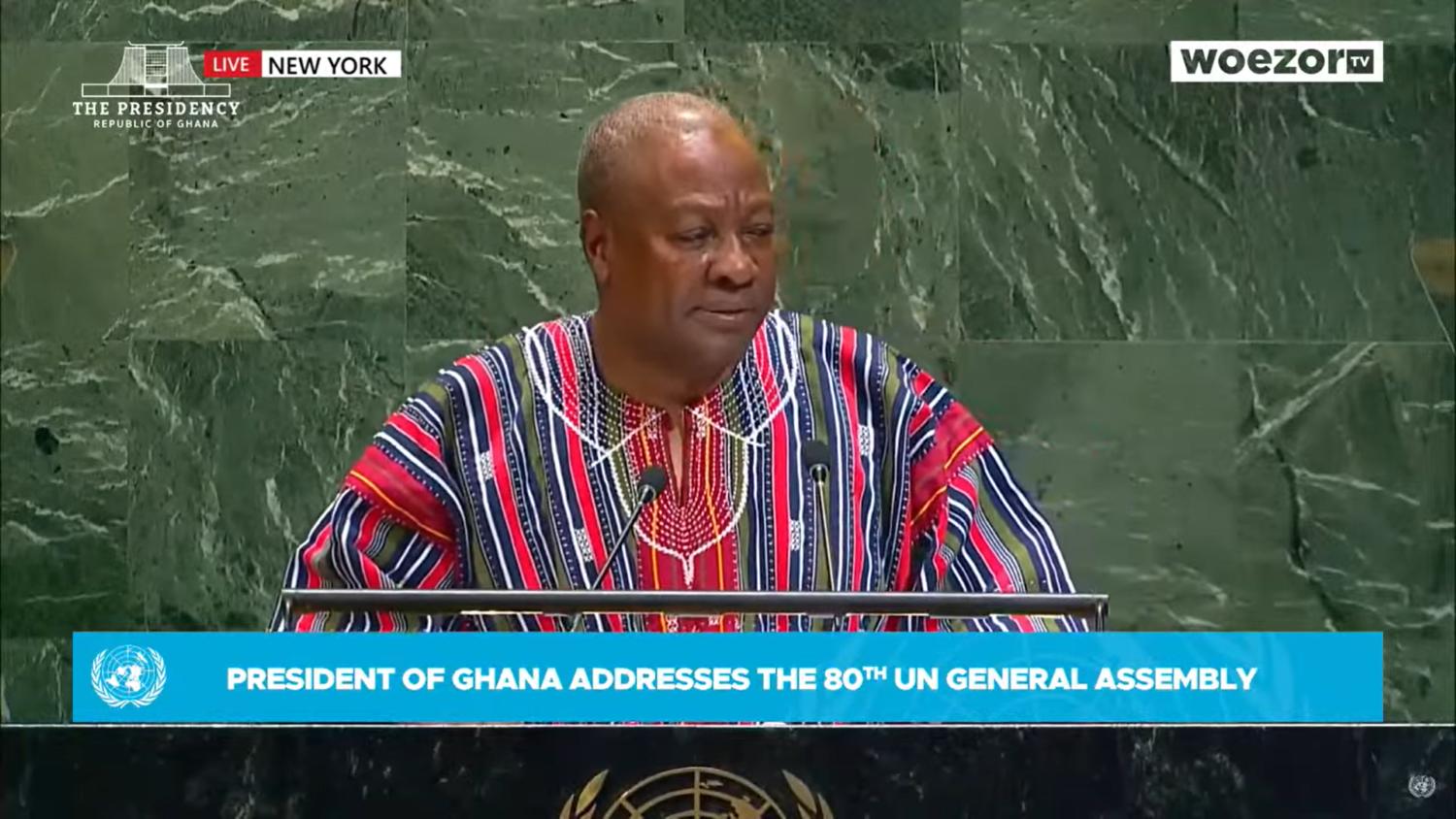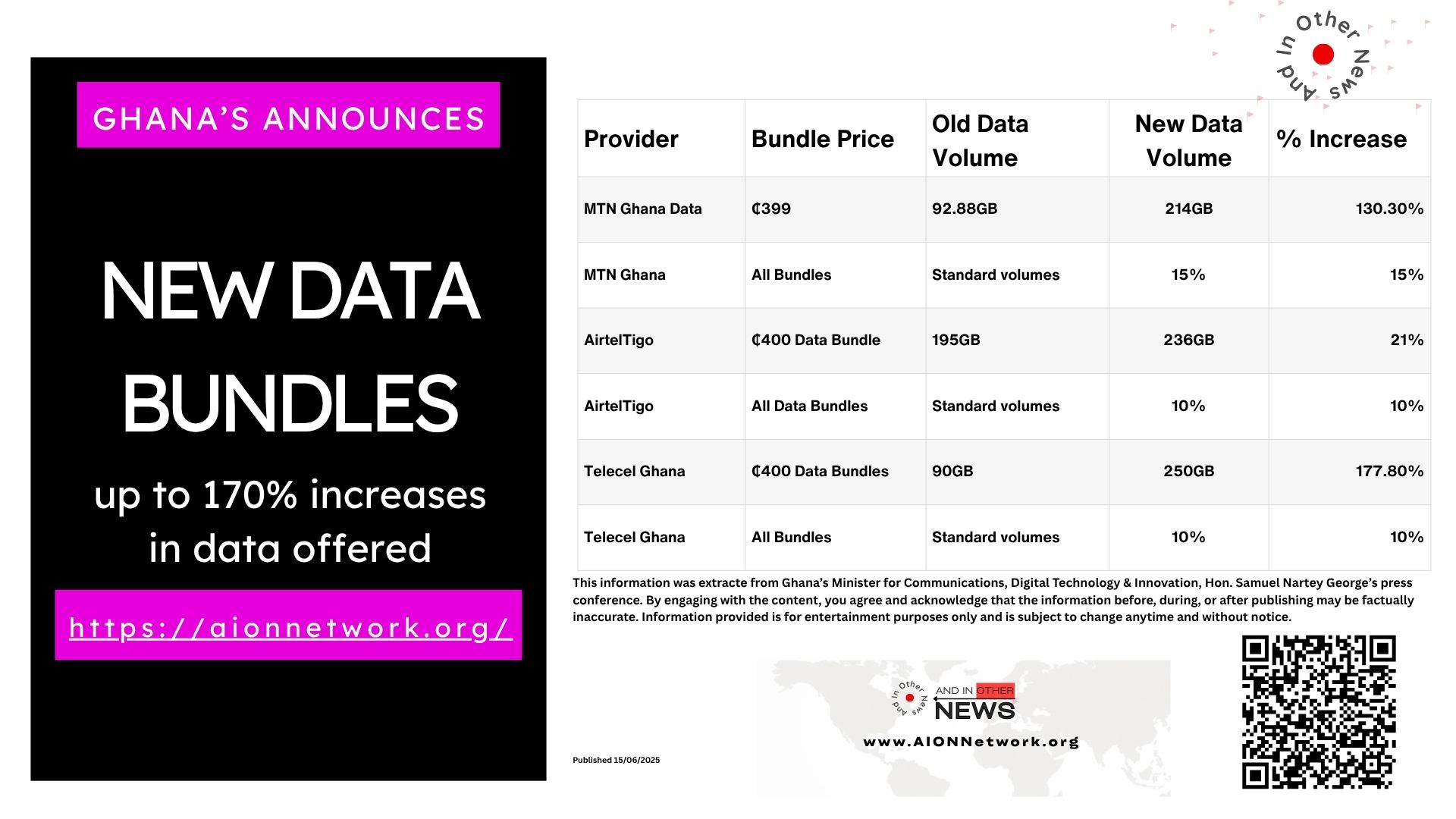When President John Dramani Mahama addressed the 80th United Nations General Assembly, he called for systemic change. From a permanent African seat on the Security Council to reparations for slavery and colonization, his speech tackled power, equity, and representation. For Ghanaians in Ghana, Ghanaians abroad, and the wider African diaspora, this was more than diplomatic rhetoric — it was a reflection of long-standing aspirations, frustrations, and shared futures.
Africa Rising: Promise and Burdens
Mahama reminded the world that Africa’s marginal role in the founding of the UN contrasts starkly with its demographic future. By 2050, a quarter of the world’s population and a third of its youth will reside in Africa. “The future is African,” he said, reinforcing the urgency for inclusive governance and economic justice.
He highlighted Ghana’s “reset agenda” — pointing to stabilizing inflation, currency strength, and renewed investor confidence. But he also stressed the need for fairer global financial systems, resource sovereignty, and ending exploitative concessions to foreign investors. This part of his message resonated deeply with both those in Ghana and those with a stake in its global standing.
For Ghanaians in Ghana: Stability, Equity, and Delivery
In Ghana, the stakes are tangible. Inflation rates, job creation, and real wage growth are immediate concerns. Mahama’s claims of economic rebound will be tested by whether citizens experience measurable improvements in daily life.
His promise to negotiate better terms for Ghana’s natural resources taps into long-standing frustrations among communities near mining and oil concessions. For these Ghanaians, the speech’s boldness will be judged by how policies shift power, profit, and dignity back toward the people.
For Ghanaians Abroad: Participation, Policy, and Purpose
For Ghanaians living overseas — in Europe, North America, and across Africa — Mahama’s speech served as a reminder of their relevance to Ghana’s development.
Many in this group send remittances, invest in property, and support relatives back home. Yet, bureaucratic red tape, unclear land rights, dual nationality hurdles, and lack of political inclusion often dilute their sense of belonging.
Mahama’s vision for economic and governance reform implies opportunities for diaspora engagement: diaspora bonds, investment platforms, and participation in national transformation. However, he must also prioritize diaspora voting rights, ease of business, and institutional trust to deepen these ties meaningfully.
This group — distinct from broader African diasporans — is often motivated not only by identity but also by the potential for return, dual residency, or generational legacy.
For the Wider African Diaspora: Identity, Justice, and Recognition
Separately, Mahama’s speech addressed the global African diaspora — those whose ancestors were enslaved or who migrated from the continent generations ago. Here, the tone shifted toward historical justice and global solidarity.
He cited Judge Mami Aussie Mensah-Pong (born in the U.S. to Ghanaian immigrants), Peter Bossman (Ghanaian-born mayor in Slovenia), and T. Michael (Ghanaian-Norwegian artist) as examples of Africans excelling abroad. While they are not Ghanaian “diasporans” in the local sense, they reflect the broader African presence shaping global culture, governance, and innovation.
Mahama’s demand for reparations and the return of stolen artifacts speaks directly to this group’s identity struggles. His commitment to recognizing slavery as “the greatest crime against humanity” and introducing a motion at the UN to that effect shows Ghana positioning itself as a moral and cultural leader.
This aligns with the ethos of Ghana’s “Year of Return” and “Beyond the Return” campaigns, which invite descendants of enslaved Africans to reconnect with their ancestral homeland.
Frictions, Risks & Tensions
With ambition comes complexity.
Internal Equity: Diaspora returnees often arrive with capital and connections, leading to perceptions of privilege over local Ghanaians.
Policy Execution: If Mahama’s administration cannot streamline reforms for diaspora inclusion, enthusiasm may wane.
Global Pushback: Demands for UN reform and reparations will meet resistance from powerful nations.
Diaspora Fatigue: Some Ghanaians abroad feel symbolic gestures outweigh concrete facilitation, leading to skepticism.
Conclusion: A Dual Call to Action
Mahama’s speech resonates on two levels. For Ghanaians abroad, it is a call to engage more actively with national transformation. For the wider African diaspora, it’s an invitation to reclaim space in global narratives and demand reparative justice.
Both groups are vital — one rooted in national identity and investment, the other in cultural memory and global presence. The challenge ahead is not only to speak to each group but to build systems that include them meaningfully in Ghana’s journey forward.


